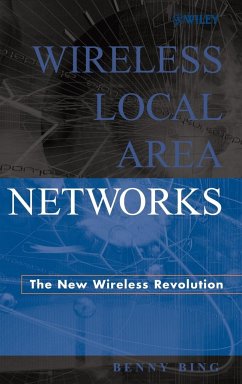There has been rapid development in the field of wireless local area networks (LANs) in the past few years. A number of leading companies are competing in this expanding field. This book is an introduction to the subject with each chapter written by leading engineers from the companies at the forefront of wireless LAN development.
_ Provides a practical introduction written by engineers from the leading wireless LAN manufacturers
_ Each chapter brings the reader up-to-date with the latest in LAN technology from such companies as 3com, Alcatel, Ericsson, Intermec, Mobilian, Cisco Systems, Texas Instruments, Time Domain Corp., and Network Associates
_ Provides detailed information for anyone who wants to learn about, implement, or invest in wireless LAN technology
_ Features chapters on security, Bluetooth, spectrum allocation, QoS, ultra-wideband wireless, key standards, and more
_ Provides a practical introduction written by engineers from the leading wireless LAN manufacturers
_ Each chapter brings the reader up-to-date with the latest in LAN technology from such companies as 3com, Alcatel, Ericsson, Intermec, Mobilian, Cisco Systems, Texas Instruments, Time Domain Corp., and Network Associates
_ Provides detailed information for anyone who wants to learn about, implement, or invest in wireless LAN technology
_ Features chapters on security, Bluetooth, spectrum allocation, QoS, ultra-wideband wireless, key standards, and more








